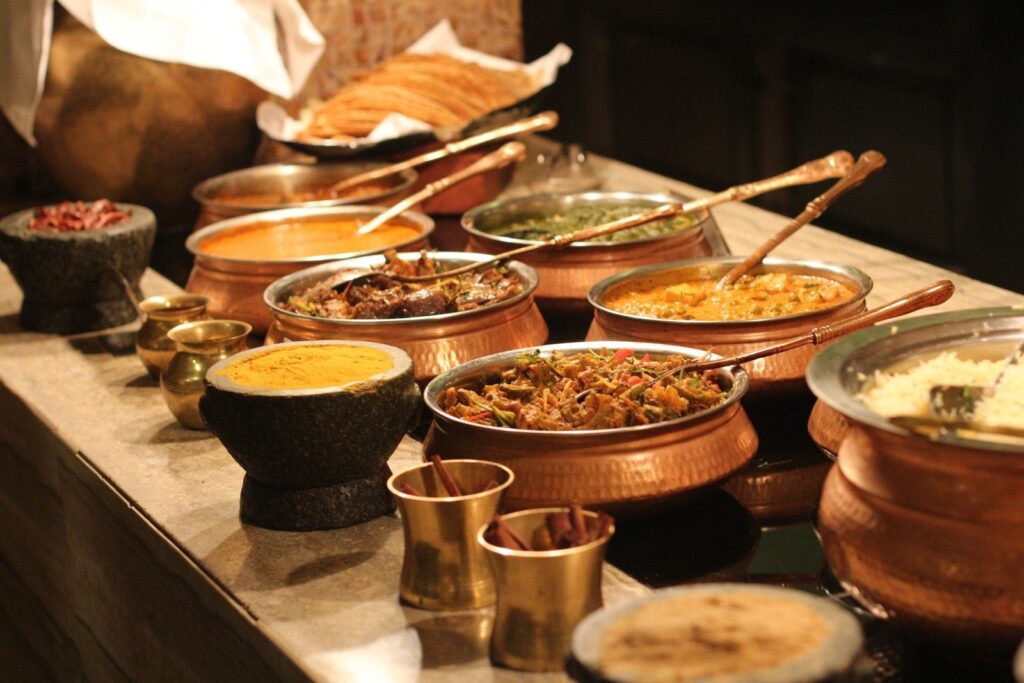The future of food stands at a crossroads. On one hand, the global population is projected to reach a staggering 10 billion by 2050, placing immense pressure on our food systems. On the other hand, innovative technologies and a growing focus on sustainable practices offer hope for a future where everyone has access to nutritious and delicious food. This article delves into the challenges and opportunities that lie ahead, exploring the sustainable practices and cutting-edge technologies that are shaping the future of our plates.
A Looming Crisis: The Challenges Facing Our Food Systems
The challenges facing our food systems are complex and multifaceted:
- Population Growth: Feeding an ever-growing population requires significant increases in food production, putting a strain on land and water resources.
- Climate Change: Extreme weather events, rising temperatures, and water scarcity threaten traditional agricultural practices and disrupt food production.
- Food Waste: A staggering one-third of all food produced globally is wasted, highlighting resource inefficiency and ethical concerns.
- Unequal Access to Food: Millions around the world suffer from hunger and malnutrition, while others struggle with obesity and diet-related diseases.
From Seed to Plate: Embracing Sustainable Practices
Sustainable practices are key to building a resilient food system for the future:
- Regenerative Agriculture: This approach focuses on improving soil health, biodiversity, and water conservation, creating a more sustainable long-term agricultural system.
- Precision Agriculture: Leveraging technology, like data analytics and sensors, allows for more efficient use of resources like water and fertilizers, minimizing waste.
- Vertical Farming: Growing crops in vertically stacked layers indoors offers a solution for urban areas and reduces reliance on traditional farmland.
- Locally Sourced Food: Supporting local farmers reduces transportation emissions and promotes fresher, more seasonal produce.
- Reducing Food Waste: Innovative solutions, like gleaning programs and upcycling food scraps, aim to minimize food waste throughout the supply chain.
A Glimpse into the Future: Cutting-Edge Technologies Transforming Food Systems
Technology is playing a crucial role in shaping the future of food:
- Gene Editing: Genetically modified organisms (GMOs) have a controversial past, but newer, more precise gene editing techniques offer potential benefits like increased crop yields and improved nutritional value.
- Cellular Agriculture: The future of meat might not involve animals! Cellular agriculture uses lab-grown meat cells to create meat products without the environmental impact of traditional animal farming.
- Food Robotics: Robots are increasingly used in agriculture, from planting and harvesting to sorting and packaging food, improving efficiency and reducing labor costs.
- Artificial Intelligence (AI): AI is revolutionizing the food industry, from optimizing supply chains to personalizing nutrition recommendations.
- Vertical Farming Technologies: Advancements in lighting systems and hydroponics are making vertical farming more efficient and cost-effective, paving the way for its wider adoption.
Ethical Considerations: Navigating the Future of Food
Innovative technologies raise ethical concerns that need careful consideration:
- Corporate Control: Will large corporations gain undue control over food production through gene editing and cellular agriculture?
- Accessibility and Equity: How can we ensure that these new technologies benefit all communities, not just the wealthy?
- Transparency and Labeling: Consumers have the right to know what they’re eating. How will we ensure transparency in the use of new technologies?
Building a Sustainable Future: A Shared Responsibility
The future of food requires a collaborative effort from various stakeholders:
- Consumers: Making informed choices about purchasing locally sourced and sustainably produced food has a significant impact.
- Policymakers: Creating regulations that support sustainable practices and encourage innovation is crucial.
- Food Industry Leaders: Embracing sustainable practices and ethical sourcing throughout the supply chain is key.
- Scientists and Researchers: Developing innovative technologies that address challenges while upholding ethical principles is essential.
A World Transformed: The Future of Food is on Our Plates
The future of food is brimming with possibilities. By embracing sustainable practices, utilizing innovative technologies responsibly, and working together, we can create a future where everyone has access to safe, nutritious, and delicious food. The choices we make today will shape the world of food for generations to come. Let’s choose wisely, embrace innovation, and cultivate a future where food is not just sustenance, but a source of joy, connection, and sustainability for all.






